When asking Larisa Faber why on earth she thought about the genre of the musical for her play on abortion, she looks at you in a stern, defiant way, before replying: „Because why not.“ She then seems to await your reaction before bursting into a short laugh – and then gives you the longer explanation. „It’s actually very straightforward. I had an abortion, so it was my own experience that sort of started it. If the procedure in itself was very unpleasant, the aftermath was a relief. But then I felt strange about it because I thought I should be feeling regret. I was wondering where that thought came from and why I felt weird that I didn’t feel regret, asking myself if there was something wrong with me.“
We’re sitting in a corner of the recently renovated Ariston, Larisa Faber and her three actresses Teklė Baroti, Monika Valkūnaitė, Nora Zrika sitting around me, talking into my iPhone, sometimes all at once, sometimes bursting into laughter before eagerly listening to someone developing a point, the topic of the play triggering all kinds of reactions, with Larisa at one point telling me: „It’ll take you forever to listen to all of this and put it into a coherent piece.“
„To me, abortion was never a taboo topic“, Faber continues. „My mom, my gran and I spoke about it very openly. At the time of Ceausescu’s regime, it was part of the lived reality in Romania, which is why in my family, people spoke about it in a matter-of-fact-way: this is the situation, this is what you have to do, this is how you survive – or not. There was no underlying threat of God punishing you until the end of your days if you go through with it. This is also why I was surprised and rather disturbed to be facing a lot of judgment from health care professionals in Luxembourg. What also bothered me was the fact that they don’t always give you accurate information: For instance, nobody told me that after taking those pills, I’d have contractions. So this happens to you and, because nobody told you, you don’t know what happens to your body.“
In the end, it was an article in the Guardian that ended up triggering the idea for the play: In this article that featured many stories about women who had an abortion, Larisa Faber was most intrigued by the words of a woman called Lynne Miles. „She said something along the lines of ,I understand why, when we talk about abortion, it’s always portrayed in the dramatic genre because it makes for good drama – but I think people should hear about women who’ve had abortions and who feel fine about it‘. That was the catalyst. I then thought: What’s the opposite of drama – and I realized it’s probably some such thing as a muscial.“
That a light atmosphere for a topic usually associated to drama and trauma wasn’t going to be to everyone’s convenience is something Larisa Faber already had to experience when she pitched her play „stark bollock naked“ to a different venue than the one that finally produced it: „The person who leads that venue said they liked the play but thought it wasn’t believable you could go through the experience and have no trauma. So I thought: Why you can make a musical about cancer, about death, about HIV, but not about an abortion. If you think this is distasteful: Can you tell me why? I think it might have to do with the fact that it is the only human experience that is relegated to one genre only. In the end, I found the right venue – so in that sense, the one refusing the project did me a favour – because if the venue and the project don’t match, that can be tricky.“
Bold, ballsy, brave
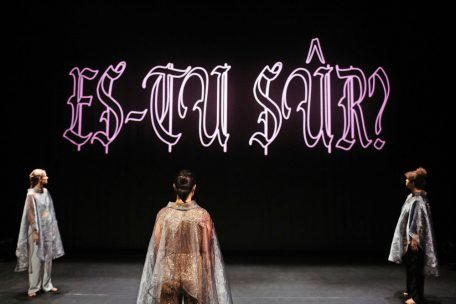
Young Luxembourgish actress Nora Zrika, who had performed in one of the MASKéNADA-produced feminist rewritings of Luxembourgish myths of „Ee roude Fuedem duerch de roude Buedem“ says having felt very excited when Larisa Faber contacted her for the project: „I of course knew about her, but I hadn’t been able to work with her yet. Once I knew what ,Good Girls‘ was going to be about and what form Larisa was thinking of, I thought: This woman has balls. Then I realized how much our everyday vocabulary is tinged with masculine expressions. It’s a bold thing to do a musical about abortions. I’m 23 years old, and if I needed to get an abortion, I wouldn’t really know where to go. I heard of Planning familial, sure, but I had no clear information.“
For Nora Zrika, this role also gave her a real sense of meaning. „Because sometimes I do wonder: I’m playing all these different roles while the world is collapsing, and sometimes, I’m asking myself: Where is the meaning in what we do? This project does something, it does something to me and my friends, many among which went through the process of getting an abortion. I guess the form of the musical is also a good way to attract a younger generation. When I tell most people my age I do theatre, they tell me that’s cool. However, that rarely means they come to see the plays I’m in. But when I tell them we sing and dance about abortion, a lot of young people who went through this think that finally, someone tells a story they might be able to identify to.“
Very few people do know (I didn’t) that Luxembourg has no official statistics about abortions – despite the fact that 61 percent of all involuntarily pregnancies are terminated. While this sentence would seem to be a logical paradox you’d rather find in a manual written by an aficionado of philosophical sophisms – because how can I give this number if there are no statistics – it really isn’t: If we have this number, it is due to the meticulous work of Planning familial: „When you go to the doctor, you usually have procedure codes. But CNS doesn’t have a code for abortions. Which means there are no official statistics in Luxembourg. The only reason there are any is because Planning familial keeps a track of what they do“, explains Larisa Faber.
In Lithuania, the situation seems to be even worse: Wile Monika Valkūnaitė tells us this is a topic you can’t joke about in Lithuania, Teklė Baroti realizes that, before she got involved in this production, all she knew was abortion existed. „You don’t talk about it in school, and you don’t talk about it in your family, unless your family is very liberal. In Lithuania, it is a taboo, it’s a stigma: If you start talking about an abortion with your friends, the room will go silent. We don’t know how to talk about it, because we don’t have that culture yet.“
While it may seem paradoxical, to say the least, that things were talked about more openly in a dictatorship than in our contemporary democracies, this is due to the fact that, as Larisa Faber puts it, in a dictatorship, „you don’t have the luxury of talking about ,what if’s‘. In our Western countries, people start talking about a dictatorship just because they have to put on a mask, because they think their free speech is curtailed, because someone is pointing out something they don’t like, whereas in an actual dictatorship, from what I understood from my mom and my gran, things are very practical – because all you think about is where and how to get your next meal. Back then, it was all about knowing that this shop was getting a food delivery the following day. So on that day, people would show up with little plastic bags, hoping that they’d get a piece of meat.“
The right to (not) exist
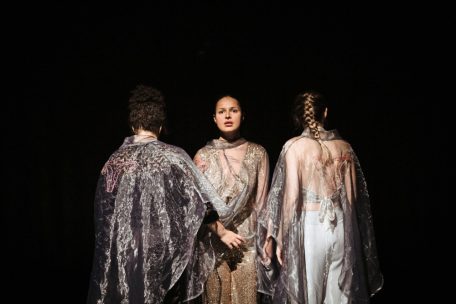
„What’s changed“, says Teklė Baroti, „is that the social pressure is more of a thing nowadays. When I was growing up, your world was just the people around you, and you knew what you could and couldn’t say, but now, with everything being so global and widespread, everything you say might end up Lord knows where. So suddenly you’re more cautious, you think about how things can backfire.“
If abortion keeps being a taboo in Luxembourg, it’s also due to an archaic narrative, a very convenient way of seeing things the wrong way. This already starts in school books, as Nora Zrika points out: „During our talks with Planning familial, Doctor Danielle Choucroun told us that in some school books, when you talk about pregnancies, the pictures that are printed don’t correlate to the real thing. Even there, where you’re supposed to get the hard facts, maybe they’ll say that at six weeks, there’s gonna be a foetus, which is not true and which they say just to make you think that life is more developed so to make you feel bad. Another point is: When you are pregnant and you want to have a child, people tell you not to talk about it until three months because you could have miscarriage. But when you don’t want it, people more or less openly suggest that you’re killing a child. And there’s yet another point: I’m told that if I take my contraceptive pill, nothing can go wrong, which is not true. This is done so that if something happens, society can imply it is the woman’s fault – which is simply not true. Therefore, it is important that this narrative changes.“
„Especially because it is clear that the possibilities of giving birth to a child just by yourself, without any intervention of a second person, is kind of impossible“, intervenes Larisa Faber. „At the beginning“, continues Teklė Baroti, „it seems to be the responsibility of two people – but once there’s a pregnancy, suddenly everyone forgets there was this other guy involved.“
„But at the same time“, adds Monika Valkūnaitė, „when you don’t want the child, people are suggesting you are not responsible enough, implying that you might need more time to think it through or to hear the baby’s heart. So there’s always this underlying sense of emotional blackmailing.“ Teklė Baroti has the impression that people react as if „a pregnant woman all of a sudden becomes crazed. It feels like the whole village feels like they need to take care of her because she doesn’t know what is best for her. Just because someone becomes pregnant doesn’t mean one has become insane. It’s rather the exact opposite: the pregnant person is the only one who can decide what is best for her.“
For Larisa Faber, „the topic touches upon something very primal: the right to exist. I guess this is why everyone feels like they’re entitled to an opinion. The debate is completely illogical: If your point is unwanted pregnancy and you think the government should control it, then you also should have mandatory vasectomies. If you think life begins at conception, then I want a tax rebate from the moment I have a positive pregnancy. Only when a person gets pregnant do you see who has reproductive powers. This is why Ceausescu forbid any contraception – because he wanted to do the big Romanian nation, which you can only achieve by forcing people to get pregnant.“ This is a procedure many dictators like and which, in combination with the extermination of everyone who doesn’t fit in the scheme of your great nation, you can label as eugenics. „No one thinks it is genocide when a guy jerks off into a bin. But when a person has their period, they’re considered unclean.“
Changing the narrative?
When asked if we urgently need a change of narrative, Larisa Faber thinks we need at least some consistency. „If you believe life begins at conception, then be consistent, then don’t allow jerking off into bins, then do everything I said above and control all aspects of reproductive power. Doctor Choucroun said: ,We need to take our reproductive power back from Adam‘ and thus get rid of the image that has been put on you by religion. Her point is to lead the debate back into the anatomical field.“
All of which makes me think about how, thanks to the likes of Jean-Jacques Rousseau or Philip Roth, literature has taught us almost everything about male morning erections, masturbation and prostate problems while abortion and menstruation or ovarian cancer – Low singer and drummer Mimi Parker has just died of it, which you can sadly read more about on the next page – are still more or less unexplored topics in contemporary literature, even if things luckily have started to change.
„I feel like the UK are very much ahead in many things, both in form as in theme. What makes Luxembourg exciting and challenging is that we have access to all of these plays we can do in their original language. That’s the exciting part. What is challenging is that there are not many plays that address Luxembourg directly. I think this is a Luxembourgish psychic trait: We like a copout. We talk about corruption by taking a play from another country in another language and then we’ll say it’s a metaphor instead of just talking about what is going on here, instead of writing a play about the people here. In the UK you don’t have that because you have to justify why it is you they should give the money for funding – and then you have to say why it is relevant for the UK, who is your audience how you intend to get to them. This encourages the local stories. I find this very empowering because I’m learning not only about their society but also how they view their own society, which you also get here in Luxembourg – but you get it indirectly, by proxy.“
As opposed to her play „stark bollock naked“, which Faber will play again at neimënster next year, this isn’t about her own intimate experience, even though her experience did help conducting the interviews that constitute the backbone of the play: After a call for witnesses in Kaunas, Luxembourg (made by Planning familial) and in the UK (made by Abortion Rights UK), people responded and meetings took place, mostly via zoom.
The transcription of these talks was the basis material for the play. When I want to know how you turn this material into a musical, Larisa Faber explains: „In every single meeting, when I spoke to people, there was always at least once, when not more than once, a moment where we realized we had shared the same experience. There was always this moment where shame fell off of their shoulders – for instance when some mentioned the thing about getting contractions and I told them I had lived through the same thing. So I thought: ,What if all these people were in a room, if they could talk to each other?‘ That thought ended up as the guiding principle of the play.“
These interviews also fed the book that is published in addition to the play. „The stories that people share are the basis for both the book and the play, which complement each other. If I wanted the play to be accompanied by a book, it is because the book is a real object, it’s not something you can refute. If someone says ,It’s not like this‘, you can say: ,It is like that, it’s right there.‘“
Educated, empowered and entertained
After the interviews were done and the play took shape, the next step was the (international) casting: „I knew I wanted one person from each country – Lithuania, Luxembourg and the UK. I wanted my actresses to play an instrument, to sing, to be able to move and to be good actors and, for Luxembourg, to speak Luxembourgish, French and a decent English. This eliminates a lot of people. When I was browsing through the actors.lu-site and came across Nora, I was like: Oh, she’s new, that’s interesting! In the UK, there’s this big database called Spotlight, so I thought casting in the UK was going to be a piece of cake because there’s an incredible number of actors and actresses on the platform. In the end, it turned out to be very tricky. And since the level with the Lithuanians was out of this world, I decided to take two Lithuanians – the fact they had both lived in the UK and were on Spotlight somehow helps to compensate for the lack of a British actress.“
If Teklė Baroti thinks that people in Kaunas are going to get blown away – „we should get prepared for some tomatoes“ –, Larisa Faber says that Luxembourg isn’t that tolerant either, with ADR-politician Fernand Kartheiser having put a question parlementaire to Sam Tanson after Jérôme Konen programmed a play about abortion at his Mamer Kinneksbond.
„Since he doesn’t seem to know about our play yet, I recently thought he’s in for a busy month. One question he asked was if the dropping attending numbers in theatres were linked to the fact that theatre is getting political. There you see how the irrationality slips in again. He wouldn’t be putting the question to parliament if someone programmed a play that he agrees with politically. Then at least be coherent and say the truth, which is: I want theatres to reflect my world view and nothing else. Then don’t talk to me about democracy.“
„This play is also linked to a wish from Planning familial to change an article in the constitution“, adds Nora Zrika. „There’s something in the paragraph talking about abortion that might be interpreted in some way so as to take that right away. And we saw what happened in America when this right is not very precisely written down in the Constitution.“
At the end of the day, „Good Girls“ was an eye-opening experience for everyone involved: For Teklė Baroti, „even if we get booed off stage in Kaunas, this will have be the first crack in the window.“ When Nora Zrika heard about the project, with her being half-Moroccan, she felt the question of intersectionality was something she could raise. „I felt there was space for an open dialogue between director, author and performers, that there was space to think, to point out that, with regard to some ethnicities, some aspects might have been left out. To me, it’s important not to be just acting and obeying like a machine. Because then you take ownership and responsibility for what you are saying.“ In the end, Larisa Faber’s biggest hope is that people will feel the three E’s: to be educated, empowered, and entertained all at once.

 Zu Demaart
Zu Demaart
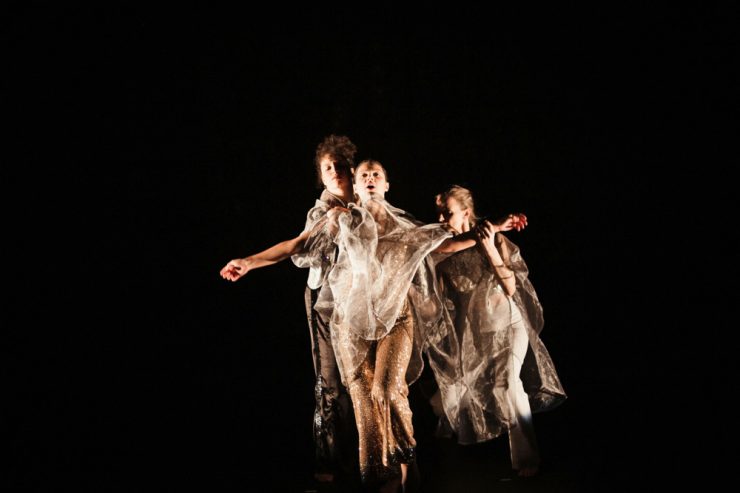
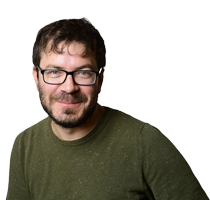

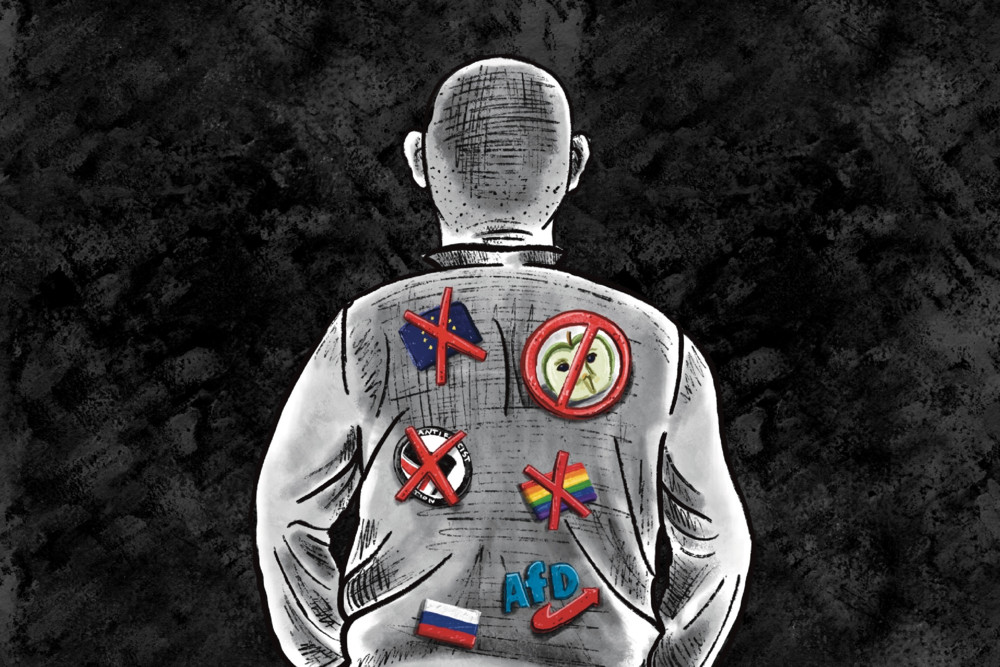

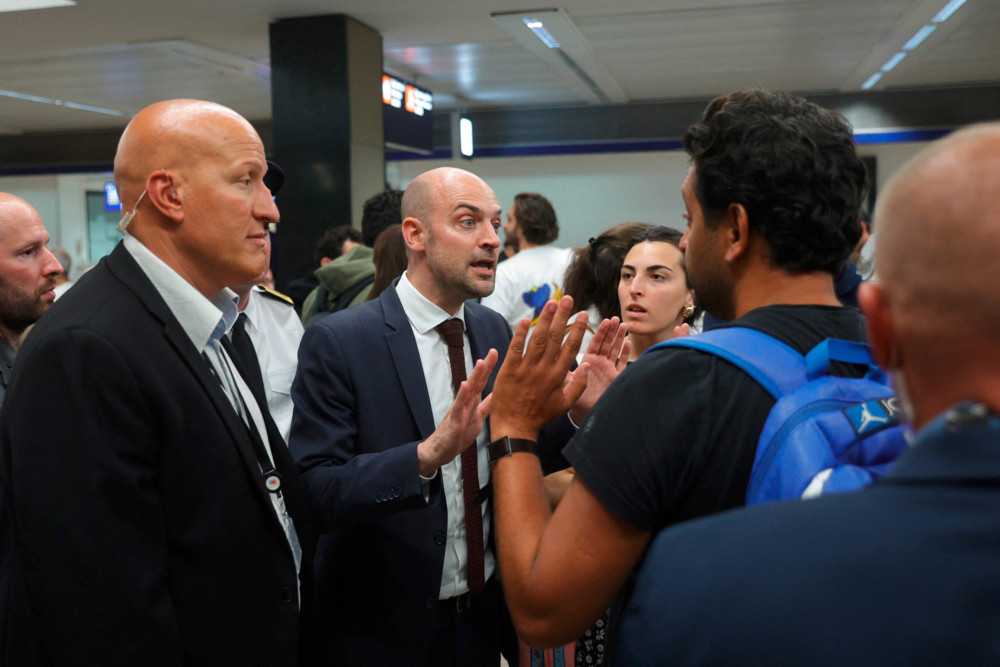
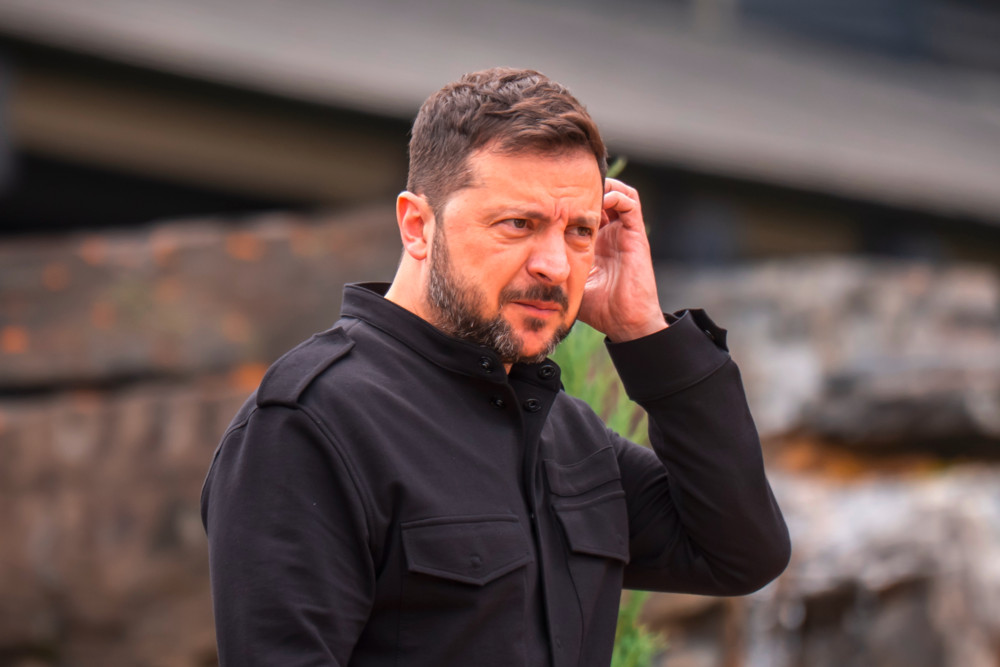

Sie müssen angemeldet sein um kommentieren zu können